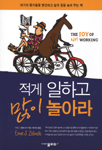
- With the recession expected to be severe and prolonged, the bigger the recession the more people will learn that not only is cash king - it's good karma!
- Gas prices have come down to levels not seen since 2003.
Retirement advice about all aspects of being retired including the nonfinancial and financial aspects of retirement planning. Create your retirement plan based on retirement advice to help you retire happy, wild, and free.








On Saturday I will be leaving for London and then on Monday to Istanbul where I am scheduled to speak on Thursday November 26th about The Joy of Not Working to 2,500 executives, scholars, and students attending the National Turkish Congress on Quality convention.
They are putting me up in an executive suite at the Ritz-Carlton Hotel (corporate rate is 700 Euro per night) for 3 nights. I won't even tell you how much they spent on the airfare because you wouldn't believe me. This all came about because of The Joy of Not Working being published in Turkish and because this organization's convention theme this year is "Quality of Life." I have calculated the organization is spending a total of anywhere from $20,000 to $25,000 to have me speak in Istanbul - but my fee for my one-hour speech is a modest $3,000.
Following are some subjects related to leisure and work that I willl include in my speech:


 Cover of the Chinese Edition (traditional Characters) of How to Retire Happy, Wild, and Free (The World's Best Retirement Book)
Cover of the Chinese Edition (traditional Characters) of How to Retire Happy, Wild, and Free (The World's Best Retirement Book)


Number 3

Number 3


But given that many Americans thought that they deserved a $400,000 house with nothing down while earning a wage of $10 an hour, they were just as GREEDY as the bankers offering these loans, wouldn't you say? This is my take on it, anyway. As Newsweek magazine recently stated in a cover story, "The whole country has been complicit in a great fraud."
The results are quite striking: Nationwide, for those who purchased U.S. homes since the beginning of 2003, nearly one in three now have negative equity. Nearly half of buyers who purchased houses in 2006 are "underwater", which is the new term for owing more on the mortgage on your house than the house is worth on the real estate market.
Overall, one in six American homeowners owe more on their homes than the homes are worth. No more getting cash out of the equity of a house to live a life that people can't afford.
The question I posed to my friends was: Are these one in six, in fact, "homeowners" if they owe more on their homes than the homes are worth?
This was the response by my friend Todd Lorentz:





























"When I was young I thought that money was the most important thing in life," joked Oscar Wilde. "Now that I am old I know that it is." Although money can’t buy happiness in your retirement, sooner or later you will likely want a measure of financial freedom that adds to your feeling of overall freedom and the feeling of prosperity that comes with it.
To some people, mastery of money and stinginess go hand in hand. Indeed, stinginess may help you acquire much more money and help you retire early,
NOTE: My book of quotations called The 777 Best Things Ever Said about Money will be released as a Free E-book on my websites in a month or two if I don't sell the rights to an American publisher who is seriously looking at it at this time.

For the record, I sold this E-book of quotations for a $8,000 advance to a Japanese publisher within 3 hours of my accidentally sending it to Japanese literary agent to whom I had no intention of sending it. Perhaps this good fortune was a result of my prosperity consciousness. What do you think?
I am presently helping my Friend Forrest Bard set up his Inspirational Quotes Webpage on Squidoo.

So why didn't the other 19 people spot the opportunity that Nicola saw? Simply, because they have a thinking problem. Fact is, opportunites for retirement businesses and retirement jobs are all around you.
Also just because there is presently an economic downturn happening does not mean that there is no opportunity. What do Microsoft, Hewlett-Packard, and Disney have in common? They all started during economic downturns, as did more than half of the 30 companies that comprise the Dow Jones Industrial Average. An recession is a great time to create your own retirement job or start one of many retirement businesses to help the economy.


